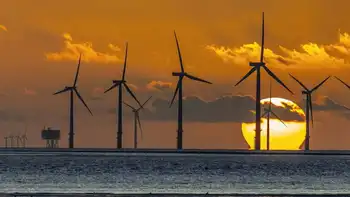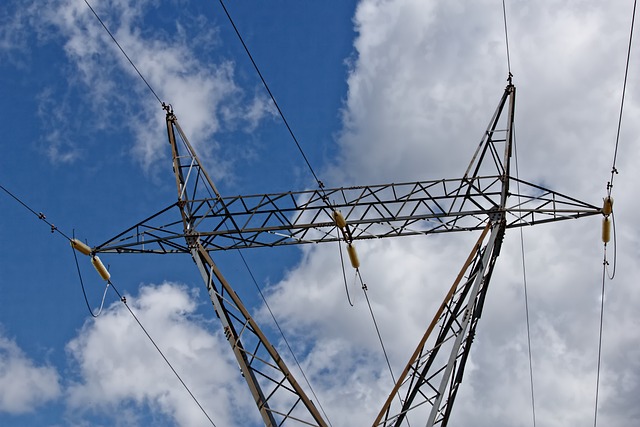Regulators debate: Who pays for sprawl?
Until several years ago, it was at least 1,000 feet for customers of Arizona Public Service. Tucson Electric Power gave 500 feet of free line.
That all disappeared when the Arizona Corporation Commission decided that was a bad idea.
But the issue is resurfacing, as some rural landowners, with the backing of the Arizona Association of Realtors, want the regulators to reconsider their action. And at least one commissioner is saying his colleagues should reverse course.
There's a financial implication for all this — and not just from the property owners who now must reimburse electric companies the cost of bringing power to their property line.
Kris Mayes, who chairs the commission, said if the landowners don't pay, then that cost is borne by everyone else. And that, she said, amounts to an improper subsidization of a handful of folks who want their rural lifestyle by those who have made the choice to build and live closer to their neighbors.
But Commissioner Gary Pierce, who originally supported eliminating free line extensions, said he has had a change of heart. He wants it brought back, at least in some form.
On the surface, the overall numbers are not large.
Economist Elliott Pollack, hired by the landowners' group Arizonans for Fair Power Policy, estimated that about 5.2 percent of all new customers of the major Arizona utilities require line extensions that used to be free.
For landowners, the numbers are more significant.
During the last four years, Pollack wrote, APS estimated the average cost of these extensions at about $9,200 each. He said, though, the utility is now saying the real average cost is somewhere between $14,000 and $19,400.
Mayes has her own calculations. She said it comes down to who pays for sprawl.
"Let's see: One million people pay for 4,000 people to put houses far away from the infrastructure of the utility," she said. "What makes sense about that?"
She said what the commission decided — and now is being asked to review — is a public policy question. Any "free" extensions that utilities provide are paid for by the rest of the ratepayers.
"It's tens of millions of dollars that have been borne by the average ratepayer," she said.
Mayes said the policy probably made sense years ago when Arizona was trying to encourage growth and sprawl.
"There's no reason, in the fastest growing state in the country, ratepayers should have to be subsidizing growth," she said. And Mayes said that, once the recession ends, Arizona is going to double in size in the next 30 years.
Pierce said he had been on the commission about four months when he voted for the change.
"It sounded reasonable to me," he said. Since then, Pierce said, he has seen the effects — and heard the complaints.
"People who actually own this property say, 'I bought this property and I can see the poles and I can see the lines. Now it's going to cost me more than my property'" to get electric service, Pierce said.
The economic arguments are at the center of the objections.
Tom Farley, chief executive officer of the Arizona Association of Realtors, said the change in policy "has had a severe effect on a number of property owners," particularly those with residential home sites. And Farley said the policy actually makes more sense now than it might have in territorial days.
"In 2009, (the) federal and Arizona government and the private sector still do not provide affordable or feasible household energy alternatives away from the nation's grid," he wrote in a letter to utility regulators. "The rancher's windmills have long ago been replaced by the utility pole, and washboards and kerosene lamps have been replaced by modern appliances."
The result of the change, said Farley, is that much of the state's private lands are now worthless.
Pollack, in his own study, said for every 100 homes that are not built because of the cost of getting power, the state loses 112 jobs and more than $5.5 million in wages. He acknowledged, though, that some people who otherwise were planning on locating in rural areas might still build, but in different locations.
Pierce said the policy also it amounts to double taxation of those residents: They pay to have service extended to their own property and then, through their rates, pay for what utilities spend in construction costs to serve everyone else.
He said the solution probably lies somewhere in between the old policy and the new one.
"It may be fair to have people have more of a contribution," Pierce said. But he said these landowners then should get some sort of a break on their monthly electric bills, at least the part that pays for the cost of building and maintaining everyone else's residential delivery system.
The other issue, said Pierce, is making sure that landowners are not paying too much. Right now, he said, the power company puts in the poles and charges pretty much whatever it wants.
"Who keeps the utilities honest on that?" he asked.
Pierce said there should be a requirement for the utility to get bids from private contractors to see if the work can be done for less.
Related News

Current Model For Storing Nuclear Waste Is Incomplete
COLUMBUS - The materials the United States and other countries plan to use to store high-level nuclear waste will likely degrade faster than anyone previously knew because of the way those materials interact, new research shows.
The findings, published today in the journal Nature Materials (https://www.nature.com/articles/s41563-019-0579-x), show that corrosion of nuclear waste storage materials accelerates because of changes in the chemistry of the nuclear waste solution, and because of the way the materials interact with one another.
"This indicates that the current models may not be sufficient to keep this waste safely stored," said Xiaolei Guo, lead author of the study and…





